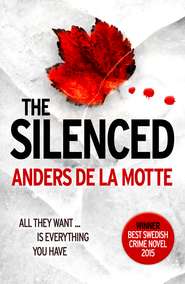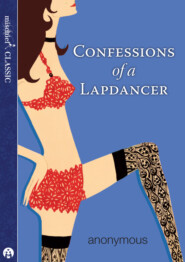По всем вопросам обращайтесь на: info@litportal.ru
(©) 2003-2025.
✖
Empire Girls
Настройки чтения
Размер шрифта
Высота строк
Поля
“Yes, I am aware,” I heard Father say, and then the hushed dialogue continued.
“Join me as I smoke a pipe, won’t you, Lawrence? This is a lot for me to take standing up,” said Father as both men walked into our line of vision. Father looked into the dining room as our visitor took off his fedora. We’d known Lawrence—we all called him that, because Father did—for two years. He’d become our solicitor. He was a tall, thin man who reminded me a bit of a willow tree.
I stood up with as much grace as I could muster and walked to the two of them.
“Lawrence, how nice of you to stop by. Are you hungry? I have plenty of dinner left over. You remember Ivy, of course.”
“Of course,” said Lawrence. “Talented Ivy, who we are sure will be famous one day.”
Ivy got up and gave a large, exaggerated bow.
“And Rose, it’s been only a few months since I saw you, but you seem so grown-up now.”
“She is grown,” said Ivy. “She’s twenty-two, and that makes her a spinster.”
She was at my side, and she nudged me with her shoulder. I had to look deep into her eyes to make sure she was teasing me. Ivy likes to tease when she’s unsure of herself.
Mr. Lawrence cleared his throat. “As ever, it’s lovely to see all of you.” He looked a bit nervous.
“And you, Lawrence, though I wish it could have waited until tomorrow. My daughters and I do cherish our evenings together,” said Father, and then turned to me. “Rose,” he said, trying to keep his voice calm. I could hear the tension, though. I knew it because I shared that trait with him. A tightening of the voice when you want to remain calm. “Mr. Lawrence and I need to discuss business. Might you stay away from the drawing room this evening?”
“But Father, my monologue. I’ve been working on it for days,” whined Ivy.
“Hush, Ivy,” I said.
She rolled her eyes at me.
Lawrence was the one to save the moment. “There’s no reason for us to rush our talk, Everett. Why don’t we all go into the drawing room, I’d love to see Ivy’s monologue. It’s been an age since I’ve been to the theater. I do enjoy a good play.”
“Why, Lawrence, I never took you for a man of the arts!” said Ivy.
“There is much you don’t know about me, Ms. Adams,” he said, taking her arm and escorting her to the drawing room.
“I have always found it odd that you are a young man with an old man’s profession. Solicitors are sneaky characters in novels and films. Are you a criminal, Lawrence?”
“I don’t think so, Ivy,” he replied, and they laughed.
Ivy was always a flirt. She couldn’t help it, really. Her whole body flirted. Her swinging short hair was as good as a wink. Her painted lips were practically a kiss. Her short dress, an invitation. I was both jealous and fascinated by her. And that night, she fascinated Lawrence, as well.
As our father took Lawrence away toward his cigar box and phonograph, Ivy stuck her tongue out at our guest’s back. One thing I do love about my sister is that she can always make me laugh, and at that moment I had trouble suppressing my giggles.
Gathering there together, as was our usual evening ritual, was strange with a guest. My parents used to have parties when Ivy and I were little girls. But as the money grew tighter, there were fewer and fewer gatherings. I’ll admit, that night was exciting because of his presence, even though we all sensed the gathering storm.
Our rituals were sacred to me. Every night, after dinner, we’d gather as a family in the drawing room and end the day with entertainment and comfort. This was the best time of the evening for all of us, even restless Ivy. Though old and well used, the furniture in the drawing room was beautiful, and I always made sure to place fresh flowers in the most curious and delightful places, as our mother used to do. In the fall I replaced the flowers with colorful leaves, and in the winter, pussy willows from the marshland by the lake.
Usually, I’d commence walking up and down the room with books piled on my head, while father smoked his cigar.
Then I’d take out my sewing, and we’d watch Ivy perform.
Ivy, whose lifelong dream was to become a famous actress, would write terribly melodramatic stage plays, and then act them out for us on a platform Father had built especially for her. She was quite good, even if her heroines were overwrought and usually died at the end of her plays, at which time Father and I were obliged to act quite sad.
With Lawrence as our guest, I did not practice my posture. I sat down and took out my sewing so Ivy could begin her dramaturgy. I knew Father and Lawrence had things to discuss, and I was curious about them. But I didn’t want to take any time away from Ivy, because I knew how she looked forward to her own practice. Though I made fun of her acting sometimes, I wanted to support her.
Ivy preformed her monologue that night—this time, from Romeo and Juliet:
“...and, when I shall die,
Take him and cut him out in little stars,
And he will make the face of heaven so fine
That all the world will be in love with night
And pay no worship to the garish sun....”
I noticed the way Mr. Lawrence could not take his eyes off my sister.
I took a better look at him myself. His hair was light, and his features were soft yet strong. It was his laughter at the end of the evening that made me begin to feel I knew him. That perhaps he could be a friend.
As the evening drew to a close, Mr. Lawrence made pleasant conversation. The Scotch Father had served brought a blush to his complexion.
“Are you working on anything new, Everett?” he asked.
“He’s working on a glorious botany book, you know. Drawings and such of plant life. You should see it,” said Ivy, interrupting.
“I’ll make sure to take a look,” he said, looking at Ivy. It was then that he turned his attention back toward my father. “Everett, thank you for this delightful evening, but as the time grows late, I fear we must get down to business.”
“Yes, yes, of course,” said my father, who guided Mr. Lawrence into his study.
I went about cleaning the kitchen and making sure Ivy was settled and not staying up all night reading Photoplay magazine until her eyes popped out of her head. I was looking forward to getting back to my novel, Bleak House, which was waiting patiently on my nightstand with other books. Books are my only passion. Father and Ivy used to go off on their excursions, never knowing that I was relieved when they were gone. That I’d wear my nightgowns all day and read from dawn till dusk.
It was very late when Father ascended the stairs and went to his rooms. I hurried out of bed, flew down the stairs and then brought his bedtime tea back up.
“Here you are, Papa. See, I will always bring your tea. No matter how late I must stay awake,” I said, placing the cup by his lamp and pulling the quilt up tight around him as I fluffed his pillows. He didn’t complain or tell me not to fuss over him like usual.
“Is something wrong, Papa?” I asked.
He settled back against the pillows and took his tea. The cup clattered in the saucer. I held his hands steady as he took a sip, and then guided them back to place it safely on the nightstand once again.
“I suppose I could tell you that everything is fine. But you are Rosemary Lillian Adams. Not Ivy. And you deserve the truth.”
“You are scaring me, Papa. What did Lawrence say?”
“Just a bit of trouble with money. But don’t worry too much, Rose. I’ll sell the new book any day now.”
“I can sew more dresses, Papa. And I should be charging more for the lace collars anyway,” I said, sitting on the bed next to him.
“Well, to be honest, Rosemary, we may need far more than my book of plants and your sewing skills. But I must tell you that now may not be the best time to speak about it, because I am very tired. Perhaps the sun will shine on us tomorrow and our financial future will be less bleak. Let’s look at it from a new perspective in the morning...what do you say?”











